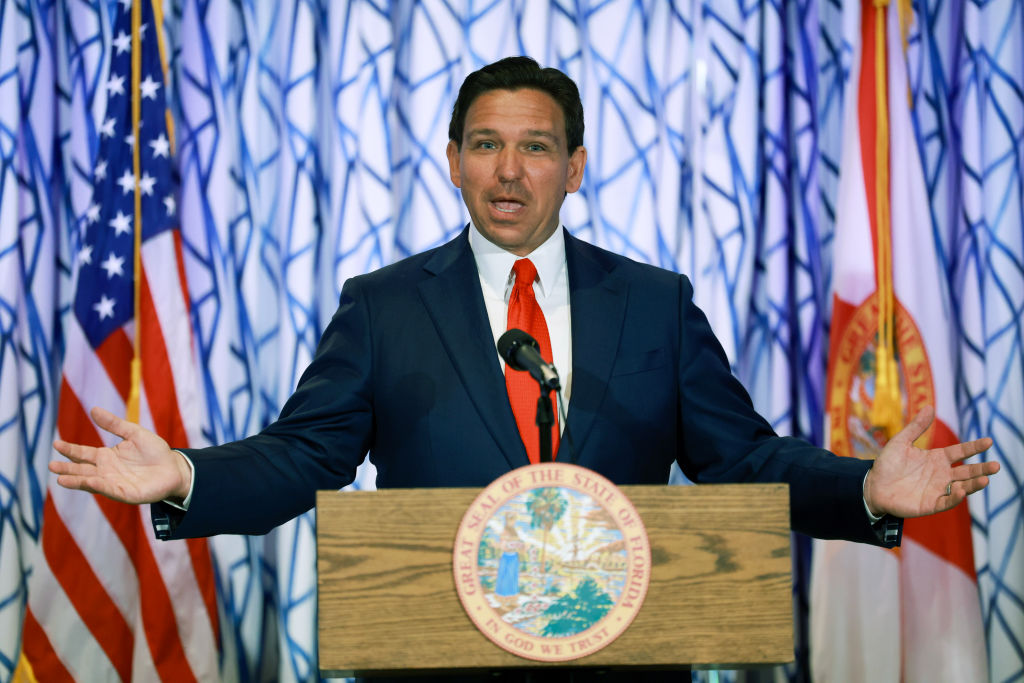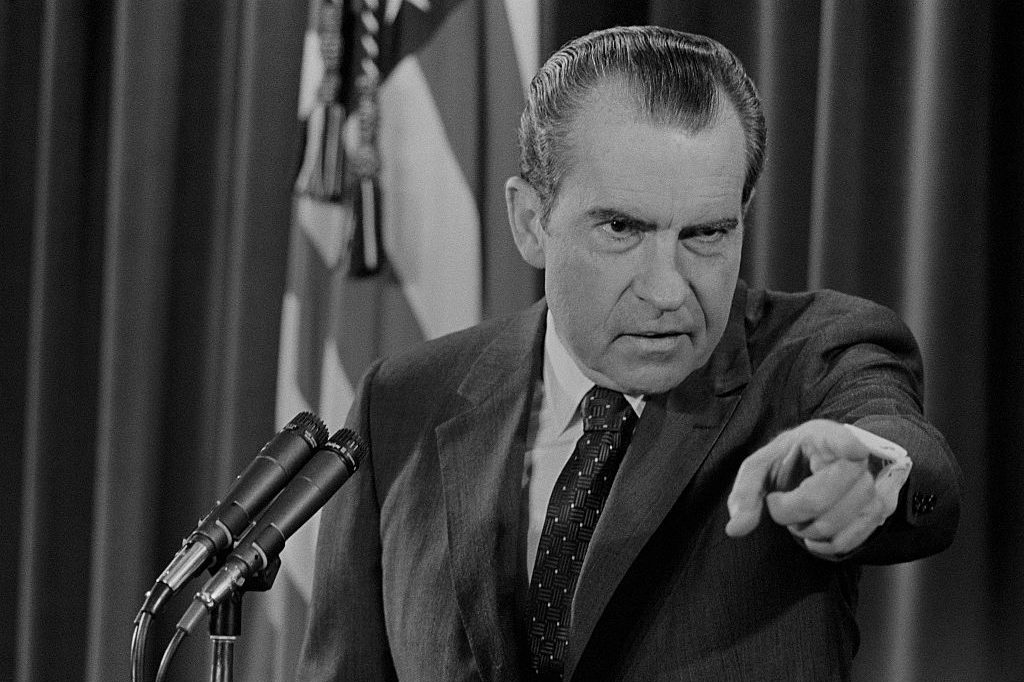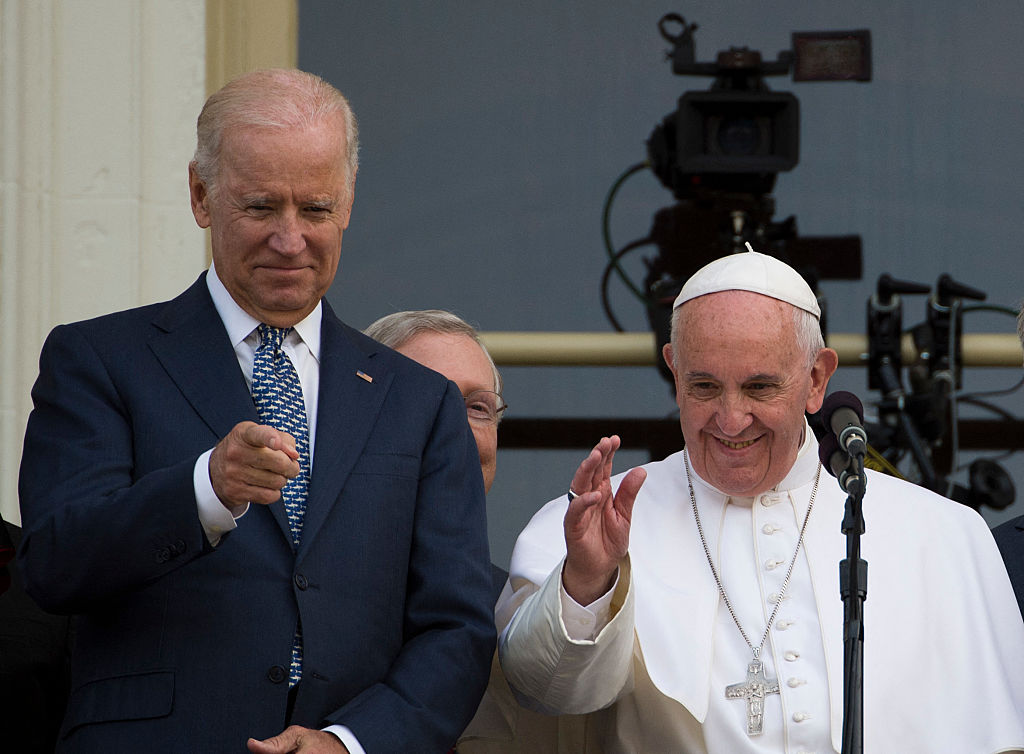“Negative partisanship” is a notorious feature of American politics. In presidential elections especially, voters don’t vote for the party and candidate they like; they vote against the party and candidate they fear. This is one reason third-party politics is a waste of time. If voters want to prevent the worst outcome, they will always choose the most viable alternative over the best alternative.
For Joe Biden in 2020, it was enough that he wasn’t Donald Trump. For Trump in 2016, it was enough that he wasn’t Hillary Clinton. Next year, we’ll find out whether the voting public now views Biden as more like Clinton or still considers him better than Trump.
Perhaps it’s a grim comment on the state of America, but for all the obvious advantages presidential incumbency conveys, the public’s decision in 2024, like its verdict in 2020, may come down to what voters like least about the last four years.
When Trump was the incumbent, America was wracked by riots and ravaged by a pandemic. The economy that boomed until Trump’s final year was sunk by Covid. Biden promised, if not a fresh alternative, at least a return to relative placidity — no more mean tweets, no more endless Russiagate coverage. Anything was better than that.
“Anything,” however, has turned out to mean dizzying inflation and an escalating culture war, with shooting wars ending badly or beginning anew. Trump can draw a sharp contrast between the prosperity of his term and the price shocks of the Biden era, as well as between the winding-down of wars on his watch and Biden’s disgrace in Afghanistan and aimlessness in Ukraine.
But before Trump can test the hypothesis that serving as president has made Biden less popular, he has to see off a handful of rivals for the Republican nomination. After 2016, a common theory had it that Trump only became the GOP nominee that year because the rest of the field was so fragmented.
Remember when there were so many candidates that Republican debates had to be split into multiple tiers — and even then not everyone got in?
The first primary is still half a year away, but this time the field looks to be much smaller, and there’s only one clear plausible alternative to Trump.
Governor Ron DeSantis pleased economic conservatives by keeping Florida open for business during the Covid crisis. He pleased social conservatives with his opposition to abortion and transgenderism. And he pleases the New Right with his willingness to use state power to hit back at the Walt Disney Company.
DeSantis appeals to conservative critics of foreign entanglements with his sometimes skeptical remarks about US involvement in Ukraine. He says things that reassure hawks, too. There could be a contradiction here, yet it’s also possible there isn’t, that DeSantis is neither a crypto-neocon nor an “isolationist.”
As president, he would have to be careful not to wind up like Biden, without the virtues of either restraint or competent engagement. As a candidate, however, DeSantis can choose a little from column A and a little from column B. Most ideological conservatives, stung by the excesses of the neocons yet far from embracing the noninterventionism of Ron Paul, may not differ from him in this. If his position is a little ambiguous, so is theirs.
All this positions DeSantis to run to Trump’s right, and the Florida governor’s most outspoken online supporters have been happy to take the ex-president to task for deviations from right-wing orthodoxy. At times, Trump has supported gun-control measures and criticized anti-abortion Republicans for being too hardline. He also regularly defends Social Security and Medicare (though, curiously, the right’s saint of saints, Ronald Reagan, did much the same).
If DeSantis has a claim on the principled conservative vote in the GOP primaries, and if a certain type of negative partisanship operates within the party itself, driving all the foes of Trump to rally around a single alternative, what’s to stop the governor from taking the nomination?
The answer just might be that orthodox conservatism is far less popular in the Republican Party than the right likes to think. Certainly the roll call of previous nominees suggests as much. Dwight Eisenhower, Richard Nixon, Gerald Ford, Bob Dole, the two George Bushes, John McCain and Mitt Romney were all much less than true-blue conservatives. And Trump himself, as the DeSantis chorus reminds us, bucked conservative orthodoxy many times. He still won in 2016.
At the presidential level negative partisanship within a party seems to take the form of nominating candidates who are not beloved by ideologues. The GOP nominates trimmers, not ultra-Reaganites, and Democrats nominate Hillary Clinton and Joe Biden, not Bernie Sanders.
Of course, each party believes the other only nominates extreme socialists or fascists. And each party’s nominees pay at least lip service to the principles of the ideological left or right. But to judge a tree by its fruit, one would have to conclude that Republicans don’t like conservatives all that much — indeed, Trump’s success in running against the Republican establishment suggests Republicans don’t even like the Republican Party.
Which is exactly what negative partisanship would lead you to expect. Republicans don’t love the Republican Party; they fear and loathe the Democrats. Donald Trump’s personal brand is more popular within the GOP than the party’s own brand, or conservatism’s. An anti-Democrat, somewhat anti-Republican and not consistently conservative candidate may be exactly what GOP voters want. If so, DeSantis’s true-blue ideological appeal will cost him the nomination.
This article is taken from The Spectator’s June 2023 World edition.

























